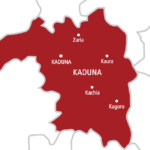From November 6 to 18, El Sheikh, Egypt, will host the 2022 United Nations Climate Change Conference, often known as COP27. This will be the 27th United Nations Climate Change Conference.
During the last conference (Cop26), which was held in Glasgow, Scotland, very few Africans attended due to COVID-19 and vaccination issues. This edition however is a profound opportunity for the continent, which is already devastated by climate change to make a collective bargain.
The United Nations Framework Convention on Climate Change (UNFCCC) needs assessment estimated that developing countries need $6 trillion by 2030 and that Africa will particularly require $2.5 trillion by 2030 to effectively deal with climate change issues.
Africa, with a population of 1.4 billion people (about 17 per cent of the world’s population) contributes less than 5% of the global greenhouse emission but it is the most affected and the least informed about climate change issues.
At the just concluded Pre-Cop27 Media Conference in Kigali, Rwanda, organised by Kenyan-based think-tanks (Power Shift Africa and MESHA) and Rwanda Media Commission, which was designed to equip journalists to effectively report the event from Africa’s perspective, experts said scaling up funding to the continent is central to meeting the target of cutting emissions.
At the previous conferences, developed countries that are the highest polluters made a commitment to deliver $100 billion to fight climate change in developing countries but that was never met.
Mohamed Adow, CEO of Power Shift Africa, opined that success at COP27, in the long run, depends on its ability to get funds flowing from “developed countries to developing countries– at the pace and scale required to match the climate challenge.”
The climate change expert held that a key priority for Africa is to get industrialised countries to “deliver and increase exponentially from the floor of $100 billion amount to at least $150 billion per year until 2025 and fulfil pledges to the Adaptation Fund and new pledges to respond to the increasing adaptation needs.”
Addressing African Climate Journalists, Mr Adow said Africa has long been the forgotten component of the climate puzzle, but this is intolerable in a year when the continent is hosting COP27, adding that, “This needs to change, and it needs to happen at the African COP.
“If we are to deal with climate change, we need to change our current energy systems as they are failing Africans. Renewable energy has the capacity to meet the needs of Africans and help build resilience to the climate crisis.”
Daniel Okechukwu Ogbonnaya, Country Representative of Global Green Growth Institute in Rwanda, echoed the voices of other African activists on the need to provide significant funding to deal with the climate crisis, which he argued is responsible for low agricultural productivity, drought and food crisis in Africa.
At the United Nations General Assembly in New York on Tuesday, the Secretary-General, Antonio Guterres, while sharing the sentiment of developing countries advised world leaders that the rich energy and conglomerates should be obligated to release some dividends from their profits to support victims of climate change and to deal with rising fuel and food costs.
He argued that the fossil fuel industry, which emits a significant amount of greenhouse gases, was making “hundreds of billions of dollars in subsidies and windfall profits while household budgets shrink and our planet burns.”
However, climate change activists like Mohamed Adow and a host of others fear that Africa may have a problem because many fossil fuel companies investing across the continent may weaken the collective resolve of the governments to speak with a unifying voice on renewable energy, mitigation and adaptation, and if that happens, the continent will be in trouble.
Nigeria at crossroads
Nigeria is beset by the numerous debilitating effects of climate change and the realities it brings. Despite taking meaningful actions to combat climate change by contributing their share to the lofty targets of preserving global temperature levels at 1.5 degrees Celsius agreed upon at COP26, effort towards achieving renewable energy away from fossil fuel lacks vigour.
Currently, desertification inches closer in the northern fringes of the country, erratic rainfall/drought affecting agricultural productivity across the country and flooding since 2012 have now become a national headache and in a scale never witnessed in history; yet, commitment has not been in a pace to commemorate climate change.
With regard to the current state of carbon emission in the country, the International Union for Conservation of Nature (IUCN) captures the Nigeria situation thus: “In 2020, Greenhouse Gases (GHG) in Nigeria totalled 126.9 million tons. The energy sector accounts for the largest source of GHG emissions (60% of total emissions). In 2017, Nigeria’s GHG emission per capita (including land use) was 3.37 tons of CO2 equivalents, far below the global average of 7 tons. GHG emissions for Nigeria in 2030 are estimated to be 435 million tons of CO2 equivalents, representing a 31% increase in total emissions between 2018 and 2030.”
In 2021, President Mohammadu Buhari signed the 2021 Climate Change Act, which provides a structure for climate change response at the country level.
The new Climate Change Act built on previous climate change policies is said to be comprehensive climate change legislation in the West Africa sub-region.
Under the Climate Change Act 2021, the Federal Ministry of Environment is tasked with developing the country’s budget. The budgets, which typically have a five-year cycle, are set in place to ensure that Nigeria meets its net-zero carbon emission targets between 2050 and 2070. Without funding, experts say the target might well be a mirage.

 Join Daily Trust WhatsApp Community For Quick Access To News and Happenings Around You.
Join Daily Trust WhatsApp Community For Quick Access To News and Happenings Around You.


